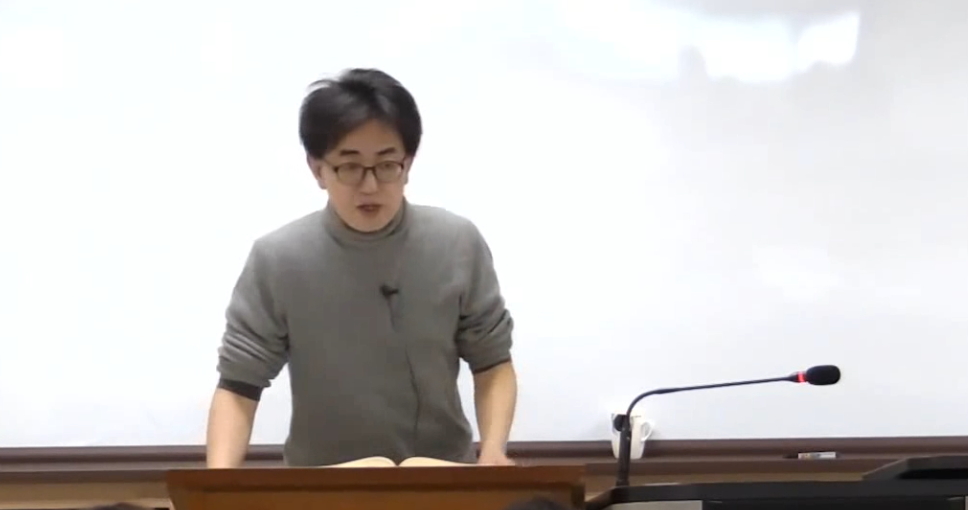우리 보안처분은 동일한 이원주의 형사제재 체계를 가진 독일과 비교해 보호감호제도가 존재하지 않고, 이러한 보호감호제도 공백의 흠결을 형벌과 다른보안처분의 강화를 통해 메우고 있...
http://chineseinput.net/에서 pinyin(병음)방식으로 중국어를 변환할 수 있습니다.
변환된 중국어를 복사하여 사용하시면 됩니다.
- 中文 을 입력하시려면 zhongwen을 입력하시고 space를누르시면됩니다.
- 北京 을 입력하시려면 beijing을 입력하시고 space를 누르시면 됩니다.

보안처분과 특별희생이론 - 특별희생이론에 근거한 자유ㆍ치료지향 보안처분 구상을 중심으로 - = Security Measures and the Theory of Special Sacrifice - Focusing on the Conception of Liberty and Treatment Oriented Security Measures Based on the Theory of Special Sacrifice -
한글로보기부가정보
국문 초록 (Abstract)
우리 보안처분은 동일한 이원주의 형사제재 체계를 가진 독일과 비교해 보호감호제도가 존재하지 않고, 이러한 보호감호제도 공백의 흠결을 형벌과 다른보안처분의 강화를 통해 메우고 있는 독특한 모습으로 전개되고 있다. 보안처분은 다양한 모습으로 존재할 수 있다. 따라서 이와 관련해 반드시 독일의 모습을 따라야 할 이유는 없다. 하지만 보안처분이 어떤 방향으로 변화하던지, 보안처분은 본연의 취지와 목적에 맞게 법치국가원리의 제한 속에서 수행되어야 한다. 현재 실무에서는 보안처분은 불법성이 높은 범죄에 대한 재범위험성이 존재하는 경우, 당연히 부과될 수 있다는 생각이 널리 퍼져있다. 보안처분이 비례성원칙에 의해 제한을 받아야 한다는 사실은 모두 인지하고 있지만, 정작 중요한 비례성 원칙심사의 구체적 내용은 주로 형식적인 측면에서 이루어지고 있는것이다. 이를 개선하기 위해서는 비례성 심사에서 형벌과 관련하여 보안처분이나오게 된 배경과 보안처분 대상자들이 가지는 특별한 법적지위의 의미를 적극적으로 고려하는 작업이 필요하다. 모든 형사제재의 기본은 형벌이다. 법치국가원칙에서 형벌은 책임원칙에 의해 엄격한 제한을 받아야만 한다. 따라서 경찰행정법이 아닌 형법에서는 재범위험성만으로 형사제재를 부과하는 것은 원칙적으로 허용되지 않는다. 보안처분은 책임원칙에 따라 형벌을 엄격하게 제한할 경우 불가피하게 발생하는 사회방위의 공백을 메우기 위해 예외적으로 인정된 형벌에 대한 보완적 형사제재이다. 따라서 보안처분을 부과받는 대상자들은 불법행위에 대한 책임이 없음에도불구하고 공공의 안전강화를 위해 자유의 특별한 희생을 강요받는 위치에 있다는 점을 간과해서는 안 된다. 이러한 특별희생에 대한 고려는 보안처분은 어떠한 방법을 사용하더라도 사회방위에만 도움이 된다면 무조건 부과될 수 있는것이 아니라, 반드시 그 내용이 자유ㆍ치료지향적으로 설계되어야 한다는 것을의미한다. 즉, 대상자를 단순히 격리 혹은 배제의 대상으로 바라보는 것이 아니라, 대상자들의 범죄습벽을 개선하여 하루빨리 완전한 자유의 몸이 되도록내용이 구성되어야 한다는 것이다. 이는 비례성 심사에서 중요한 위헌 판단기준으로 적용되므로, 실무에서는 하루빨리 이러한 기준에 맞게 보안처분을 정비할 필요가 있다.
다국어 초록 (Multilingual Abstract)
In South Korea, criminal sanctions are primarily punitive and tightly regulated by the principle of responsibility. This principle dictates that sanctions should be imposed based solely on the individual’s responsibility for the crime, not on potential future risks. The latter approach is more characteristic of administrative police law rather than criminal law.
Security measures, while supplementary to primary criminal sanctions, should address specific gaps in social defense that arise when punishments are strictly confined by the principle of responsibility. Therefore, the imposition of security measures must consider the special sacrifices made by those subjected to them.
A liberty- and treatment-oriented approach should be adopted for implementing security measures, ensuring that the individual’s liberty is respected and that the measures aim at rehabilitation and treatment rather than mere containment.
Evaluating whether these demands are being met should become a key criterion for constitutional review. Comprehensive amendments to the laws governing security measures are necessary to align them with these principles. Such amendments should ensure that security measures are imposed fairly, proportionately, and with a clear focus on rehabilitation and social reintegration. This alignment would adhere to both the rule of law and the principle of responsibility, balancing individual rights with maintaining social order.
South Korea’s approach to security measures within its dualistic criminal sanction system is evolving uniquely. It is critical to ensure these measures respect the inherent principles and objectives while strictly adhering to the rule of law. The pr...
South Korea’s approach to security measures within its dualistic criminal sanction system is evolving uniquely. It is critical to ensure these measures respect the inherent principles and objectives while strictly adhering to the rule of law. The prevalent notion that security measures can be imposed merely due to the risk of recidivism for highly illegal crimes is problematic, as it often contradicts the rule of law, which should underpin any legal system.
In South Korea, criminal sanctions are primarily punitive and tightly regulated by the principle of responsibility. This principle dictates that sanctions should be imposed based solely on the individual’s responsibility for the crime, not on potential future risks. The latter approach is more characteristic of administrative police law rather than criminal law.
Security measures, while supplementary to primary criminal sanctions, should address specific gaps in social defense that arise when punishments are strictly confined by the principle of responsibility. Therefore, the imposition of security measures must consider the special sacrifices made by those subjected to them.
A liberty- and treatment-oriented approach should be adopted for implementing security measures, ensuring that the individual’s liberty is respected and that the measures aim at rehabilitation and treatment rather than mere containment.
Evaluating whether these demands are being met should become a key criterion for constitutional review. Comprehensive amendments to the laws governing security measures are necessary to align them with these principles. Such amendments should ensure that security measures are imposed fairly, proportionately, and with a clear focus on rehabilitation and social reintegration. This alignment would adhere to both the rule of law and the principle of responsibility, balancing individual rights with maintaining social order.
동일학술지(권/호) 다른 논문
-
- 한국형사법학회
- 도규엽
- 2024
- KCI우수등재
-
- 한국형사법학회
- 최병천
- 2024
- KCI우수등재
-
- 한국형사법학회
- 허황
- 2024
- KCI우수등재
-
- 한국형사법학회
- 김은희
- 2024
- KCI우수등재




 KCI
KCI KISS
KISS






